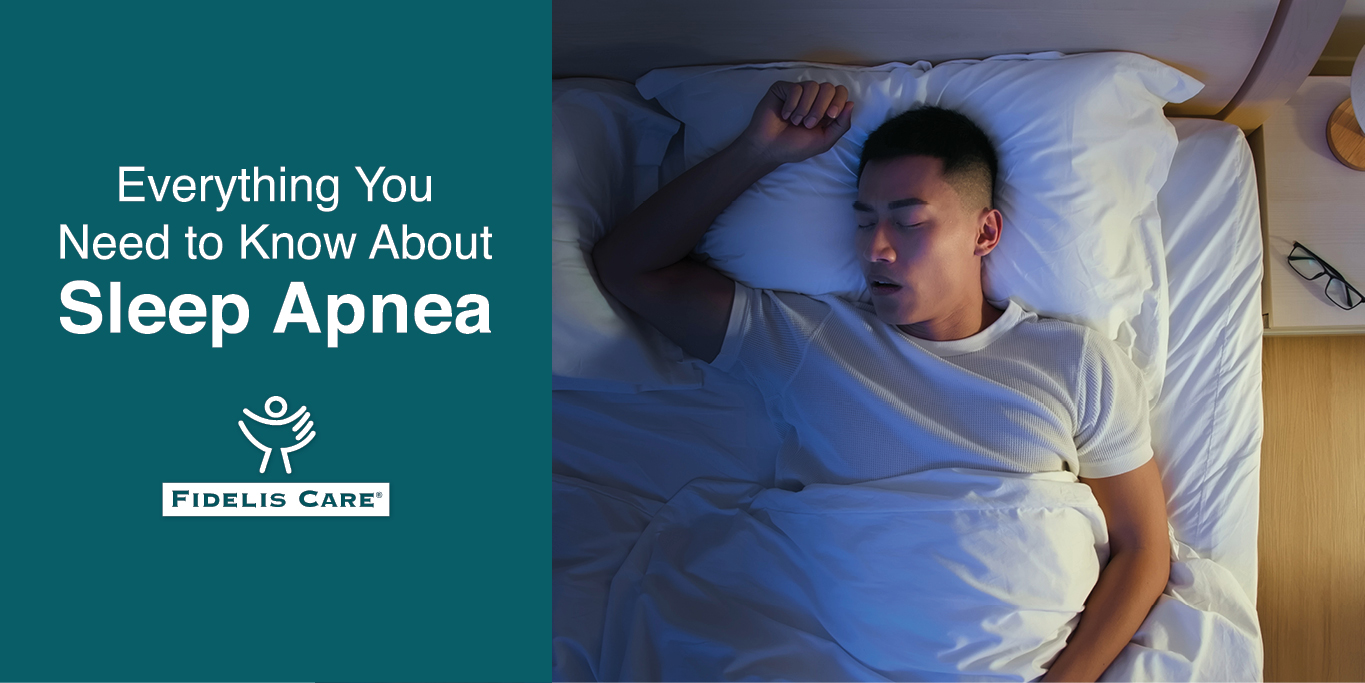6/24/2021
•
Posted by Kevin Narag, MD

“Laugh and the world laughs with you, snore and you sleep alone.” — Anthony Burgess, Inside Mr. Enderby
Roughly 20 million Americans have a condition called Sleep Apnea, which interferes with their ability to get the benefits of restful sleep. However, approximately 75% of these people may not even know that they have this condition. This is especially important for men, who are two times more likely to have sleep apnea than women.
What is Sleep Apnea?
Sleep apnea is a chronic medical problem where people stop breathing multiple times during sleep. Most of the time, this is due to blockage of the upper airway when the muscles of the throat relax (called Obstructive Sleep Apnea, or OSA). Sometimes, it occurs when the brain does not send signals to breathe during sleep (Central Sleep Apnea). Over time, untreated sleep apnea can increase the risk of heart attacks, stroke, depression, high blood pressure, diabetes, and problems with memory and concentration.
What are signs and symptoms of Sleep Apnea?
- Chronic loud snoring
- Gasping or choking during the night
- Frequently waking up at night, especially to urinate
- Morning headaches
- Excessive daytime sleepiness (for example, needing a lot of naps, or falling asleep easily when watching television or reading).
- Irritability
- Poor concentration
- Sore throat or dry mouth when waking up
What are the risk factors for Sleep Apnea?
Certain factors may increase the risk of sleep apnea, including:
- Obesity
- Having a large neck size
- Sleeping on your back
- Smoking
- The anatomy of the throat (the size and the position of your jaw, tongue, and other tissues in the throat can all affect breathing).
- Family history of sleep apnea.
- Age over 50 (though sleep apnea can affect people of any age).
How do I know if I have Sleep Apnea?
If you are concerned that you might have sleep apnea, the first step is to share your concerns with your physician. To test for sleep apnea, your doctor may order what is called a sleep study, where certain measurements like your oxygen level are monitored while you sleep. This test can either be done at home or at a sleep testing facility.
Is there a treatment for Sleep Apnea?
Sleep apnea is treatable! Sometimes, losing weight, cutting down on alcohol, and sleeping on your side may resolve sleep apnea. Many times, your doctor might prescribe a special machine to be used during sleep. Called continuous positive airway pressure (CPAP) or bi-level positive airway pressure (BiPAP), these machines blow air through a mask to help overcome blockages in the airway. Other treatment options include special mouthpieces worn at night and, in rare cases, surgery to fix the tissues causing airway blockage.